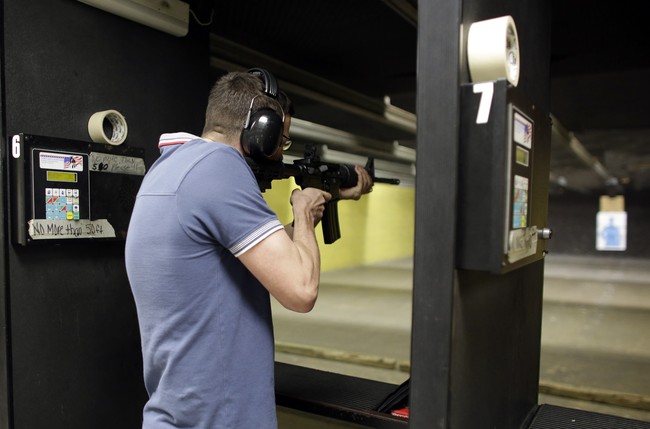During my conversation with Second Amendment Foundation’s Alan Gottlieb on today’s Bearing Arms’ Cam & Co, the longtime 2A advocate predicted that blue state Democrats will be doubling down on their anti-gun rhetoric and actions in the wake of last week’s elections; a fair assumption given what we’ve seen from politicos like California Gov. Gavin Newsom and New York’s Kathy Hochul since last Tuesday. While some Democrats have turned introspective and are at least cognizant of the fact that their policies (including on gun control) aren’t resonating with broad swathes of the electorate, a fair number of them have concluded that the reason for the disastrous performance from Kamala Harris and other Democrats is that they just weren’t progressive enough for voters.
I wouldn’t be surprised if some Democrats in swing states do decide that demanding a ban on “assault weapons” or pushing for more gun-free zones isn’t a winning strategy, but in states where they have firm control of the state legislature and the governor’s mansion gun owners and the Second Amendment are likely to be top targets in the months ahead. So what’s in store in those states, especially those that have already banned so-called assault weapons, instituted “red flag” laws, or mandated waiting periods?
A bill quietly introduced in New York earlier this year could be a clue. The Sporting Range Good Neighbor Act is one of those deceptively titled bills that, like the Concealed Carry Improvement Act, would make things a lot worse for gun owners.
Joe Olscamp runs Escarpment Arms in the town of Newfane, New York .He says if the bill passes he’d likely have to close the shop’s outdoor range, and fears many other ranges in the state would also be unable to comply with the legislation’s demands.
Olscamp is concerned for his business and his clients, after New York State Senator Pete Harkham (D) introduced a bill in January, which aims to mitigate outdoor lead contamination from projectiles.
The bill proposes:
- Changing outdoor gun ranges to be 600 yards long and 300 yards wide
- Have backstops that “effectively captures bullets,” and have those backstops covered by a roof to prevent erosion
Olscamp said these upgrades would be financially unrealistic for businesses and shooting clubs.
“It’s not realistic, now that’s us as business, but you take conservation clubs into play where a lot of people join to teach kids how to shoot…Now all of a sudden these clubs that operate on minimum budget they have to close, because they can’t satisfy it,” explained Olscamp.
The bill also includes a prohibition on ranges that have “wetlands or open water sources” within their confines, which has some Second Amendment supporters concerned that any puddles or standing water that accumulates after a rainstorm could be enough to force them to shut down.
Harkham’s bill hasn’t progressed out of the Senate committee it was assigned to earlier this year, but as gun control activists plot their post-election strategy it could soon be on the move. The danger isn’t limited to New York, either. Anti-gun lawmakers can impose all kinds of restrictions on ranges that would make it practically impossible for them to operate without officially banning them or zoning them out of existence. They can even claim they’re not going after guns themselves but are just trying to limit the environmental impact of lead ammunition or react to neighbors’ concerns about noise levels.
The end result, though, could still be a range desert for many communities, with gun owners unable to easily train with their firearms or engage in recreational shooting. Blue state lawmakers have already taken aim at the right to carry in the wake of the Bruen decision, but in the aftermath of the elections anti-gun legislators could view gun ranges as a perfect target of opportunity in their quest to curtail our Second Amendment rights.
Read the full article here


